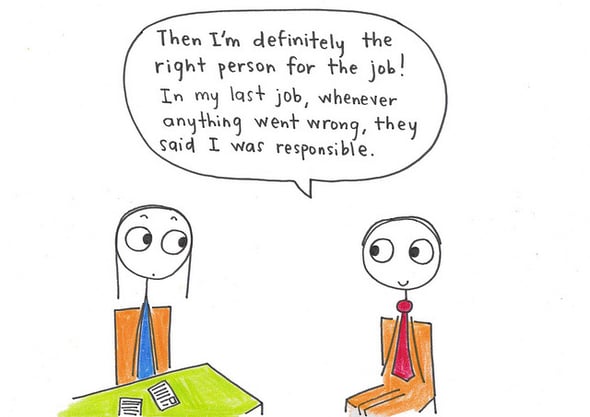As we continue to explore the results from our survey of HR professionals from around the globe, I wanted to look at what our survey respondents told us about the all-important interview process. And of course, you can’t talk about interviews without talking about hiring managers, so we’ll see what there is to say about them, too.
image: studio tdes | CC BY
There was a study done by Michigan State University that reported interviews made up 90% of the hiring decision. Only 23% of respondents in the 2015 McQuaig Global Talent Recruitment Survey felt the interview had that much influence (7% of those felt 100% of the hiring decision was based on the interview). When we look at the weighted average, though, 74% of the hiring decision is based on the interview, according to our respondents. No matter which way you look at it, this is a critical element of the process to get right.
And that’s the question, are companies getting it right?
Let’s Talk Hiring Managers
To answer that, it’s important to understand the key players in that process: hiring managers.
In our 2014 survey one of our big findings was that nearly half of respondents felt that their hiring managers were not strong interviews. This year, the numbers improved a bit with 36% feeling the same way. That could be a bit of a problem if so much is riding on this one element.

Just half (51%) told us that their hiring managers have had interview training – okay, we might have a bit of cause-and-effect happening there. Interviewing (proper, behavioral interviewing) is a skill and you can’t just pick it up along the way.
In spite of this lack of training, 66% of respondents said their hiring managers had the skills to assess candidates. Maybe that means they’ve got some naturals who don’t need training, or maybe these companies have some processes and tools in place to compensate and equip their hiring managers to assess candidates properly.
For the second year in a row, “Getting hiring managers to make time for interviews” was the #3 recruiting challenge facing HR professionals. And when we combined hiring-manager-related items, they jumped to #2 on the list, again for the second year running.
When we asked a question about why hiring managers were not engaged in the recruitment process in this year’s survey, only 33% said that there is no problem and they are, in fact, engaged. The phrasing of the question may not allow us to make the assertion that 67% of hiring managers are not engaged in the process, but I’ll bet that’s true.
We have some suggestions for engaging those hiring managers here.

The Recruiting Process
I wanted to also take a look at the recruiting process surrounding the interview. It’s often been said that you can’t hit a target you don’t have. In this context, it means you can’t find that ideal candidate—with properly trained hiring managers or not—if you don’t have a profile for what that looks like.
In our survey, 75% of HR professionals told us they’re creating an ideal candidate profile as part of the recruiting process. I think that’s pretty good, 100% would be nice, but that’s a B+. I’d love to know what you think; is this an important step in finding the right candidate?
The top items our respondents include in their ideal candidate profiles are (in order):
- Experience
- Technical Skills
- Personality/Character
- Education
- Non-technical skills
Preventing New-Hire Turnover
Are you in the 75% or the 25%? Whether you’re using ideal candidate profiles now, or considering adding them in the future, there is another result from our survey you should keep in mind: the reason new hires fail.
When we asked this, the #1 answer was “Personality/attitude not suited to the role” by a huge margin (57% cited this versus 22% for the next-highest response, “Lack of skills”). So, make sure you’re including some measure of personality or temperament in your ideal candidate profile if you want to prevent the #1 reason for new hire-turnover.
For more insights, download the complete 2015 McQuaig Global Talent Recruitment Report here.
What are your experiences with the interview? Is the process working at your company? Are hiring managers engaged? Are we measuring the right things to achieve the results we’re after?